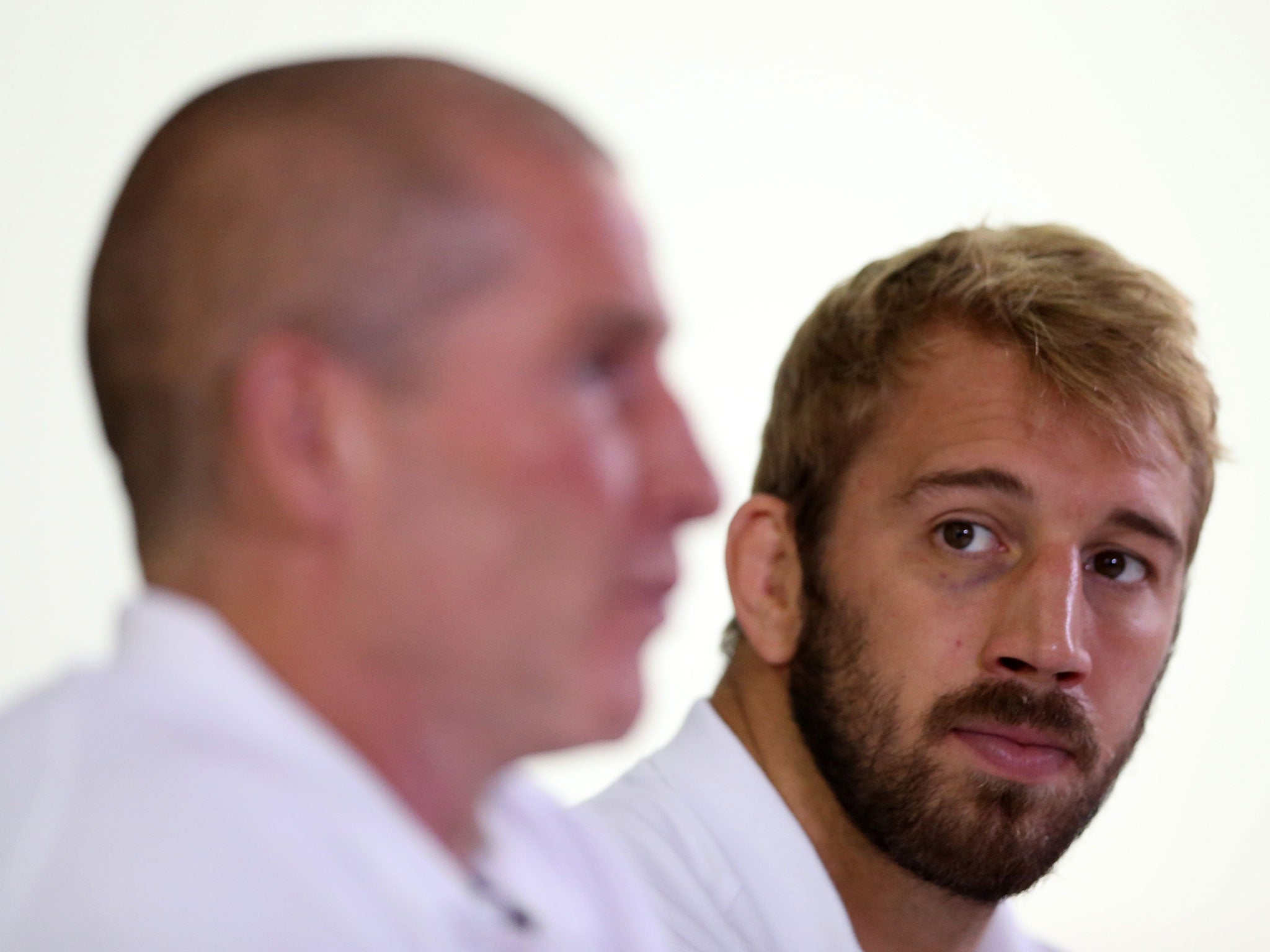RWC 2015: England must develop a purposeful mindset – not give Stuart Lancaster a kicking
I’m calling for a new coaching framework based around four F-words...

This World Cup has shown us things we never expected to see: Japan’s famous victory over South Africa is the most obvious example, but not the only one. Sadly, the reaction from many quarters to England’s departure from knock-out contention was all too predictable. Former players, ex-coaches, the wider media – some came into the tournament with an agenda and others did not, but virtually all of them have performed uncannily accurate impersonations of vultures swooping towards a carcass.
If a significant percentage of the so-called critics predicted an English victory over the Wallabies, why should that matter to them now? After all, there is a traditional pastime to enjoy: namely, kicking a man when he’s down. We are talking here about people who are free from accountability when they go for the jugular and, for the most part, deal in drivel. I just hope there is a sane, sober and properly conducted review into Stuart Lancaster’s contribution to the England set-up over the last three and a half years. He deserves nothing less.
Now that I’ve had my rant, I’d like to explore a key element in peak performance – the key element, in my opinion – that seems to be elusive as far as English rugby is concerned. I’m talking about a purposeful mindset. Once it takes root it quickly flourishes, but as far as I can see, there are precious few places in the game in this country where the ground has been properly prepared.
The England-Australia game can be seen as a classic “mindset clash” of differing rugby cultures, and there were clear indications of it directly from the kick-off. England booted the ball so far downfield, there was no possibility of a meaningful chase and a challenge for possession.
The Wallabies set one ruck and then endeavoured to go wide immediately, through a combination of backs and forwards. Some people might have seen this as a gamble, given that they were in their own 22, but in fact their skill set, linked to a fearless mindset, made it risk-free.
Some of the so-called lesser nations are ahead of us
As it turned out, they were quickly closed down. No matter: there was always Plan B. Will Genia fed Bernard Foley, who kicked long. The initial wide play had brought the England open-side wing Jonny May upfield, so the full-back Mike Brown ended up catching the ball in an exposed and isolated position, in the face of intense pressure. “Simplicity is the ultimate sophistication,” said Leonardo da Vinci. The phrase sums up that opening play in a nutshell.

For far too long, English rugby has been based around conservative option-taking – easy option-taking, if you like – and restrictive game planning. Only on very rare occasions, such as when an enlightened coach has found himself in an influential position or a small group of players decided they wanted to push back the boundaries, or a number of outstanding talents happened to be born around the same time, has change come about.
If we consider some of the language employed at the heart of the game in England, you’ll understand what I mean. In no particular order, here are some recurring words and phrases:
SET-PIECES
Regarded as opportunities to exert physical dominance or chances to cheat rather than as a starting point for attack. Sixteen people confined in a small area of the pitch leaves lots of space for skilful and courageous players to explore.
CONTACT/COLLISION
The tackle-pad approach to coaching. Some people actually make videos of big hits, which other people pay to watch! What’s that all about? Why not encourage the concepts of early passes before contact, clever footwork and the offload – not as things of wonder but as core skills? After all, off-loading has been around for at least 60 years to my knowledge.
TERRITORY
This is another easy way out and it results in too much inappropriate kicking. Does territorial dominance always equate to winning? Computer says “no”. So why not attack from deep instead of close in, when defences are invariably on red alert?
TARGETS and GOING THROUGH THE PHASES
Whatever happened to the “let’s get the ball and play to score” mentality? I like to see players who see every piece of possession as a weapon with which to hurt the other team and are seriously disappointed if opponents are allowed to settle into a comfortable defensive pattern.
EARNING THE RIGHT TO GO WIDE
If someone wants to tell me what is so ridiculous about using width in a purposeful fashion as a means of opening up space and creating mismatches, I promise to listen.
I’m the first to acknowledge that rugby is about balance, but I think it’s becoming clear in this tournament that the best teams are speaking the language of flexibility, not restriction. When and where in England are we developing what I call “paradigm shift behaviour” and producing players capable of offering Something Completely Different – the kind of thing we see from Usain Bolt before a big race, when he uses showmanship to intensify his focus and maximise his motivation?
Some of the so-called lesser nations are ahead of us in this regard. As for the All Blacks, who are the very opposite of a lesser nation, I give you this snapshot of their thinking. As a way of reinventing their approach to attacking rugby, they now consider any ruck which exceeds two or three seconds to be virtually worthless. Many teams, some of them highly ranked, take four times as long to move the ball from the tackle area.
Words create revolutions: Liberté, égalité, fraternité and all that. So I’m calling for a new coaching framework based around four F-words and it goes like this:
• Framework, not Gameplan.
• Freedom, not Restriction.
• Fearlessness, not Fear.
• Futuristic, not Flatlining.
Or to put it another way: Status Quo may be a great rock band, but it’s a rubbish way to live, to coach and to play rugby.
Brian Ashton is a former England head coach who guided the team to the World Cup final in 2007.
Join our commenting forum
Join thought-provoking conversations, follow other Independent readers and see their replies
Comments